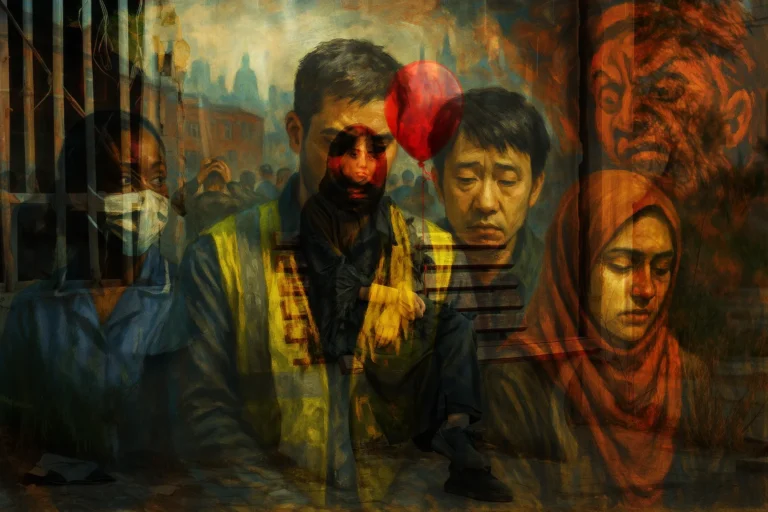The Age Gap in Brexit: How Older Voters Decided the Future for the Young
The 2016 Brexit referendum revealed a significant generational divide in voting patterns, with younger and older voters exhibiting markedly different preferences.
🗳️ Age-Based Voting Patterns in the Brexit Referendum
Data from the referendum indicates that younger voters predominantly favored remaining in the European Union, while older voters leaned towards leaving:(WIRED)
- 18–24-year-olds: Approximately 75% voted to remain.
- 25–34-year-olds: Around 60% supported remaining.
- 50–64-year-olds: About 60% voted to leave.
- 65 and over: Approximately 64% chose to leave. (Intergenerational Foundation, Wikipedia, Wikipedia)
Turnout rates also varied by age group:(the University of Bath’s research portal)
- 18–24-year-olds: 64% turnout.
- 25–39-year-olds: 65% turnout.
- 40–54-year-olds: 66% turnout.
- 55–64-year-olds: 74% turnout.
- 65 and over: 90% turnout. (Intergenerational Foundation, the University of Bath’s research portal, The Guardian)
These figures highlight that older voters not only favored leaving the EU but also participated in the referendum at higher rates than younger voters.
💸 Economic Implications for Younger Generations
Post-Brexit economic challenges have disproportionately affected younger individuals:
- Inflation: As of April 2025, UK inflation rose to 3.5%, exceeding the Bank of England’s 2% target.
- Housing Costs: Private renters, many of whom are younger adults, experienced a 3.6% inflation rate, compared to 1.8% for older homeowners.
- Financial Strain: Rising housing costs have led to increased financial instability and housing insecurity among younger renters. (The Guardian)
These economic pressures underscore the challenges faced by younger generations in the post-Brexit landscape.
🧠 Generational Perspectives and Motivations
The divergence in voting behavior can be attributed to differing life experiences and worldviews:
- Older Voters: Many grew up before the UK’s entry into the European Economic Community in 1973 and may associate EU membership with a loss of national sovereignty. Concerns about immigration and national identity also influenced their preference to leave.
- Younger Voters: Having grown up within the EU framework, younger individuals often value the freedoms and opportunities it provides, such as ease of travel, education, and employment across member states. (Wikipedia)
These contrasting perspectives have contributed to the generational divide observed in the referendum.(Time)
📊 Demographic Influence on the Referendum Outcome
Analyses suggest that even with full participation from younger voters or a lowered voting age, the referendum outcome would likely have remained unchanged due to demographic factors:(Population Europe)
- Population Distribution: The UK has a larger proportion of older voters, who predominantly supported leaving the EU.
- Voting Patterns: Even with 100% turnout among younger voters, the numerical advantage of older leave-supporting voters would have sustained the leave majority. (Wikipedia)
This indicates that demographic composition played a crucial role in determining the referendum’s result.
🧭 Reflecting on Intergenerational Dynamics
The Brexit referendum has sparked discussions about intergenerational equity and representation:
- Long-Term Impact: Decisions made by older generations have lasting effects on younger individuals, who will live with the consequences for decades.
- Political Engagement: The referendum highlighted the need for increased political participation and representation among younger demographics to ensure their interests are considered in major national decisions.
These reflections emphasize the importance of fostering inclusive dialogue and considering the diverse perspectives within a society when making pivotal choices.
So let it be understood with clear mind and open heart: the pain the young now carry is not the end, but the beginning of a greater unfolding. Though they bear the weight of the old generation’s unhealed wounds, it is the younger ones who hold the task of healing, step by step.
Only by facing these shadows can they open the path to new growth and greater freedom. One step at a time, human consciousness will heal, not by rejecting the past, but by transforming it, so the flow of life can move forward, stronger, freer, and more whole.
“Understand this: we are one organism, one human consciousness. To know it, experience it. Be still, be quiet, and sit with yourself. Remember, when the old becomes stagnated, nature brings forth the new, for the river cannot go back; it can only flow forward.”
📈 Post-Brexit Price Increases
Brexit has contributed to various economic pressures, leading to increased costs for UK consumers:
Inflation and Cost of Living
- Overall Inflation: As of April 2025, the UK’s Consumer Prices Index (CPI) rose by 3.5%, up from 2.6% in March. (Office for National Statistics)
- Housing Costs: Private renters experienced a 3.6% inflation rate, compared to 1.8% for older homeowners. (The Guardian)
- Food Prices: By the end of 2021, Brexit had increased food prices by around 6% due to new trade barriers. (LSE)
- Energy Bills: In April 2025, gas prices rose by 7.5%, and electricity prices increased by 2.9%. (Office for National Statistics)
- Water and Sewerage: Prices surged by 26.1% in April 2025, the largest rise since at least February 1988. (Office for National Statistics)
Housing Market
- House Prices: UK house prices grew by 35% between June 2016 and June 2024, contrary to pre-referendum predictions of an 18% fall. (Market Financial Solutions)
- Rental Costs: Urban rents are projected to increase by 4.3% nationally and 3.7% in London during 2025. (Reuters)
🗣️ Misleading Claims During the Brexit Campaign
Several claims made during the Brexit referendum campaign have been widely criticized for being misleading:
NHS Funding Promise
- The Vote Leave campaign claimed that the UK sends £350 million a week to the EU, suggesting this money could be redirected to the NHS. (Wikipedia)
- The UK Statistics Authority labeled this claim a “clear misuse of official statistics,” as it did not account for the rebate and funds returned to the UK. (The Independent)
- Post-referendum, figures like Nigel Farage distanced themselves from this claim, acknowledging it was a mistake. (The Independent)
Admission of Misinformation
- Dominic Cummings, a key strategist for the Leave campaign, admitted that the campaign won by lying, stating that the referendum was won on false pretenses. (New Statesman)
- A committee of MPs criticized both the Leave and Remain campaigns for peddling “misleading” figures and “implausible assumptions.” (BBC)
These economic impacts and instances of misinformation highlight the complexities and consequences of the Brexit decision, underscoring the importance of informed public discourse in democratic processes.
For a visual exploration of the generational divide in the Brexit vote, you might find this video insightful:(YouTube)







